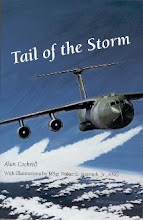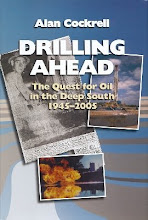 A legendary writer of aviation literature, and a passionate purveyor of truth, once wrote:
A legendary writer of aviation literature, and a passionate purveyor of truth, once wrote: "Airline pilots are separated into tribes in spite of their common occupation....United pilots are considered colorless and sticklers for regulation. American pilots are thought to be a mixed lot, prone to independent complaint and rebellion. TWA pilots, highly regarded individually, are pitied for the chameleon management of their company. Pan Am pilots, admired and envied for their long-range flying, are thought to be shy and backward in foul-weather work. The tribes are each healthy and strong in their way, but their characteristics, conditioned by their aerial territories, are as different as the Sioux, the Navajos, and the Cherokees. All this is recognized as debatable. Yet the legends had to start somehow."
The writer, whose identity I'll leave you to guess, regarded the airline pilot "tribes" as noble ones, worthy of esteem and honor, but prone to fickleness and eccentricity. I suppose you could say the same about other persuasions. When I joined my tribe I was stunned by the wide spectrum of behavior and personal conduct of the group, as compared to my military experience. But to be fair, most of them were in the middle of the spectrum—respectable, hard-working, caring people. I was proud to be in their midst. I'm not so sure now.
We're not wearing our hats any more. I'll grant you, it seems trivial at first thought. But we have shed the one physical item that sets us apart and above. Cynics will say, “We don't need hats. Hats don't have anything to do with flying.” True, but the headgear means much to the projection of professionalism among those who trust their lives to us.
Here's what happened. Our union, in preparation to entering a long and contentious period of contract negotiations with a stubborn management, decided that we would show our solidarity by collectively shedding our hats, and then re-donning them at the union's direction. They created a nifty little graphic on the website to tell us what we were supposed to be doing.

The problem with this “solidarity” scheme was that management laughed at it and made a clever counter-move. They put out a new regulation saying the wearing of hats was now optional. That torqued-off a lot of pilots who thought shedding the hats was an act of teaching management a severe lesson about how unified we were. They turned their wrath on their brethren who thought that hat-wearing was a projection of their professionalism, and in particular, a demonstration of the highly exalted concept of “captain's authority.”
Soon, those who wore their hats became the targets of ridicule and slander, sometimes right in front of the passengers. Tensions grew. The pilot group split over the very thing that was supposed to unite them. Then, an incident occurred that made newspapers and broadcasts across the nation. A hatless first officer shouted vulgarities at a hatted captain in a gate room crowded with passengers. His heated tirade included the threat to use a baseball bat on the captain.
The captain became irate and shivered with indignation. The captain's first officer (not the guy who initiated the clash) wisely concluded that the flight could not be safely completed with his emotionally upset captain. He called the operations manager and explained his concerns. The flight was canceled. The incident hit the news.
All bad enough, but it got worse. The guy verbally assaulted a second hatted captain the same day, threatening to use a lead pipe on him. This threat landed the offender before a board-of-inquiry. The captain who was threatened—a friend of mine named Tim—testified on behalf of the company. Who do you think the union backed? Yup.
It's appropriate that the union represented the reprobate pilot, but rather than question Tim about what he said and heard, the lawyer tried to cast Tim as a company man who wanted to use the incident to work his way up into a management position. Thankfully, the miscreant lost and was fired. But Tim, long time a union supporter and consummate professional instructor pilot who wanted nothing more than to train the world's best pilots, felt betrayed by his own kind. He had dreamed of being a part of this tribe of pilots since he was a kid. Now he's dejected.
The hat switch is still off, and the union leadership—in the midst of critical contract negotiations with the company—is bickering and backbiting among itself, appearing more like a soap opera than a professional association. The company is laughing harder than ever at our ineptitude. It didn't used to be this way. Our union leadership were once adults.
The other day I saw Tim wearing his hat in the concourse. He looked confident and professional. He grinned when he saw me wearing mine. We walked side-by-side down the concourse passing legions of unhatted pilots. None of them made a remark. The passengers saw us. They paid no heed to the others.
The writer of those sagacious words at the beginning of this post would reel with disgust if he knew what was going on in his tribes. But then again, maybe he wouldn't. I think he understood our ilk.
If the union strikes, I'll strike. I'm no scab. But in the meantime, I'll just do my job and be professional, taking care of my passengers. This man would tip his hat at that.

Who is he?



